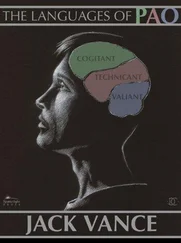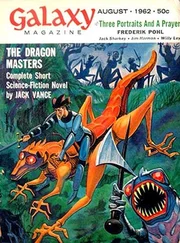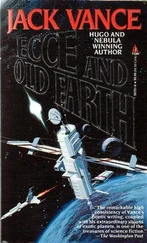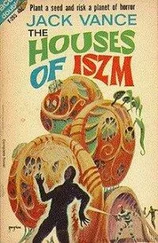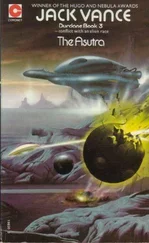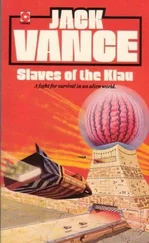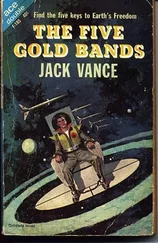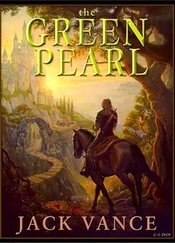Jack Vance - The Dying Earth
Здесь есть возможность читать онлайн «Jack Vance - The Dying Earth» весь текст электронной книги совершенно бесплатно (целиком полную версию без сокращений). В некоторых случаях можно слушать аудио, скачать через торрент в формате fb2 и присутствует краткое содержание. ISBN: , Жанр: Фантастика и фэнтези, на английском языке. Описание произведения, (предисловие) а так же отзывы посетителей доступны на портале библиотеки ЛибКат.
- Название:The Dying Earth
- Автор:
- Жанр:
- Год:неизвестен
- ISBN:0-671-44184-1
- Рейтинг книги:3 / 5. Голосов: 1
-
Избранное:Добавить в избранное
- Отзывы:
-
Ваша оценка:
- 60
- 1
- 2
- 3
- 4
- 5
The Dying Earth: краткое содержание, описание и аннотация
Предлагаем к чтению аннотацию, описание, краткое содержание или предисловие (зависит от того, что написал сам автор книги «The Dying Earth»). Если вы не нашли необходимую информацию о книге — напишите в комментариях, мы постараемся отыскать её.
The Dying Earth — читать онлайн бесплатно полную книгу (весь текст) целиком
Ниже представлен текст книги, разбитый по страницам. Система сохранения места последней прочитанной страницы, позволяет с удобством читать онлайн бесплатно книгу «The Dying Earth», без необходимости каждый раз заново искать на чём Вы остановились. Поставьте закладку, и сможете в любой момент перейти на страницу, на которой закончили чтение.
Интервал:
Закладка:
Very beautiful, thought Ulan Dhor, but no place to defend himself against attack. Passageways to either side were echoing and empty; ahead was a small chamber with a floor of glimmering floss, which seemed to radiate light. He stepped within. His feet rose from the floor; he floated, lighter than thistle-down. Elai no longer weighed in his arms. He gave an involuntary hoarse call, struggled to return to his feet to ground, without success.
He floated upward like a leaf wafted in the wind. Ulan Dhor prepared himself for the sickening plunge when the magic quieted. But the floors fell past, and the ground level became ever more distant. A marvellous spell, thought Ulan Dhor grimly, thus to rob a man of his footing; how soon would the force relax and dash them to their deaths?
"Reach out," said Elai faintly. "Take hold of the bar."
He leaned far over, seized the railing, drew them to a landing, and, disbelieving his own safety, stepped into an apartment of several rooms. Crumbled heaps of dust were all that remained of the furniture.
He lay Elai on the soft floor; she raised her hand to her face and smiled wanly. "Ooh—it hurts."
Ulan Dhor watched with a strange sense of weakness and lassitude.
Elai said, "I don't know what we will do now. There is no longer a home for me; so shall we starve, for no one will give us food."
Ulan Dhor laughed sourly. "We will never lack for food—not while the keeper of a Green booth can not see a man in a gray cloak ... But there are other things more important—the tablets of Rogol Domedonfors— and they seem completely inaccessible."
She said earnestly, "You would be killed. The men in red must fight everyone—as you saw today. And even if you reached the Temple of Pansiu, there are pitfalls, traps, poison stakes, and the ghosts on guard."
"Ghosts? Nonsense. They are men, exactly like the Grays, except that they wear green. Your brain refuses to see men in green ... I have heard of such things, such obstructions of the mind ..."
She said in a injured tone, "No other Grays see them. Perhaps it is you who suffers the hallucinations."
"Perhaps," agreed Ulan Dhor with a wry grin. They sat for a space in the dusty stillness of the old tower, then Ulan Dhor sat forward, clasped his knees, frowning. Lethargy was the precursor of defeat. "We must consider this Temple of Pansiu."
"We shall be killed," she said simply.
Ulan Dhor, already in better spirits, said, "You should practice optimism ... Where can I find another air-car?
She stared at him. "Surely you are a madman!"
Ulan Dhor rose to his feet. "Where may one be found?"
She shook her head. "You are resolved on death, one way or another." She rose also. "We will ascend the Shaft of No-weight to the tower's highest level."
Without hesitation she stepped into the void, and Ulan Dhor gingerly followed. To the dizziest height they floated, and the walls of the shaft converged to a point far below. At the topmost landing they pulled themselves to solidity, stepped out on a terrace high up in the clean winds. Higher than the central mountains they stood, and the streets of Ampridatvir were gray threads far below. The harbor was a basin, and the sea spread away into the haze at the horizon.
Three air-cars rested on the terrace, and the metal was as bright, the glass as clear, the enamel as vivid as if the cars had just dropped from the sky.
They went to the nearest; Ulan Dhor pressed the entry button, and the dome slid back with a thin dry hiss of friction.
The interior was like that of the other car—a long cushioned seat, a globe mounted on a rod, a number of switches. The cloth of the seat crackled with age as Ulan Dhor prodded it with his hand, and the trapped air smelt very stale. He stepped inside, and Elai followed. "I will accompany you; death by falling is faster than starvation, and less painful than the rocks ..."
"I hope we will neither fall nor starve," replied Ulan Dhor. Cautiously he touched the switches, ready to throw them back at any dangerous manifestation.
The dome snapped over their heads; relays thousands of years old meshed, cams twisted, shafts plunged home. The air-car jerked, lofted up into the red and dark blue sky. Ulan Dhor grasped the globe, found how to turn the boat, how to twist the nose up or down. This was pure joy, intoxication—wonderful mastery of the air! It was easier than he had imagined. It was easier than walking. He tried all the handles and switches, found how to hover, drop, brake. He found the speed handle and pushed it far over, and the wind sang past the air-boat. Far over the sea they flew, until the island was blue loom at the rim of the world. Low and high—skimming the wave-crests, plunging through the magenta wisps of the upper clouds.
Elai sat relaxed, calm, exalted. She had changed; she seemed closer to Ulan Dhor than to Ampridatvir; some subtle tie had been cut. "Let's go on," she said. "On and on and on—across the world, past the forests ..."
Ulan Dhor glanced at her sideways. She was very beautiful now—cleaner, finer, stronger than the women he had known in Kaiin. He said regretfully, "Then we would starve indeed—for neither of us has the craft to survive in the wilderness. And I am bound to seek the tablets . .."
She sighed. "Very well. We will be killed. What does it matter? All Earth dies ..."
Evening came, and they returned to Ampridatvir. "There," said Elai, "there is the Temple of Cazdal and there the Temple of Pansiu."
Ulan Dhor dropped the boat low over the Temple of Pansiu. "Where is the entrance?"
"Through the arch—and every place holds a different danger."
"But we fly," Ulan Dhor reminded her.
He lowered the boat ten feet above the ground and slid it through the arch.
Guided by a dim light ahead, Ulan Dhor manoeuvered the boat down the dark passage, through another arch; and they were in the nave.
The podium where the tablet sat was like the citadel of a walled city. The first obstacle was a wide pit, backed by a glassy wall. Then there was a moat of sulfur-colored liquid, and beyond, in an open space, five men kept a torpid watch. Undetected, Ulan Dhor moved the boat through the upper shadows and halted directly over the podium.
"Ready now," he muttered, and grounded the boat. The glistening tablet was almost within reach. He raised the dome; Elai leaned out, seized the tablet. The five guards gave an anguished roar, rushed forward.
"Back!" cried Ulan Dhor. He warded off a flying spear with his sword. She drew back with the tablet, Ulan Dhor slammed the dome. The guards leapt on the ship, clawing at the smooth metal, beating at it with their fists. The ship rose high; one by one they lost their grip, fell screaming to the floor.
Back through the arch, down the back passageway, through the entrance and out into the dark sky. Behind them a great horn set up a crazy clangor.
Ulan Dhor examined his prize—an oval sheet of transparent substance bearing a dozen lines of meaningless marks.
"We have won!" said Elai raptly. "You are the Lord of Ampridatvir!"
"Half yet remains," said Ulan Dhor. "There is still the tablet in the Temple of Cazdal."
"But—it is madness! Already you have—"
"One is useless without the other."
Her wild arguments subsided only as they hovered over the arch into Cazdal's Temple.
As the boat glided through the dark gap it struck a thread which dropped a great load of stones from a chute. The first of these, striking the sloping side of the air-car, buffeted it away. Ulan Dhor cursed. The guards would be alert and watchful.
He drifted along at the very top of the passage, hidden in the murk. Presently two guards, bearing torches and careful of their steps, came to investigate the sound.
They passed directly below the boat, and Ulan Dhor hastened forward, through the arch into the nave. As in the Temple of Pansiu, the tablet gleamed in the middle of a fortress.
Читать дальшеИнтервал:
Закладка:
Похожие книги на «The Dying Earth»
Представляем Вашему вниманию похожие книги на «The Dying Earth» списком для выбора. Мы отобрали схожую по названию и смыслу литературу в надежде предоставить читателям больше вариантов отыскать новые, интересные, ещё непрочитанные произведения.
Обсуждение, отзывы о книге «The Dying Earth» и просто собственные мнения читателей. Оставьте ваши комментарии, напишите, что Вы думаете о произведении, его смысле или главных героях. Укажите что конкретно понравилось, а что нет, и почему Вы так считаете.

